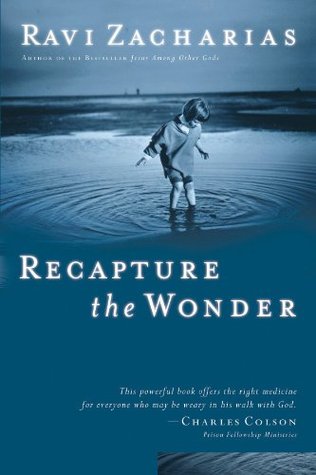More on this book
Kindle Notes & Highlights
Wonder is one of those “possessions” that needs disciplined guarding and thoughtful guiding.
Religion and its specifics can easily lose contact with what salvation is all about. It is not about ritual; it is about a relationship.
You see, the Christian faith is really not one that calls us to a ceremonial life by means of which spirituality is attained. Rather, it challenges us to remember that by our own efforts we cannot produce a truly spiritual life. It takes the work of the Holy Spirit in us. That, religion cannot do.
The Bible is a book of simple clarity but also of intentional mystery; both are indispensable aspects of wonder. In its clarity, we celebrate our position as the pinnacle of God’s creation. In its mystery, we are dwarfed.
But the word gratitude may need a little explanation. It comes from the same word as the word freedom. When something is gratis, we consider it free. Gratitude is the freeing expression of a free heart toward one who freely gave.
The gratitude that I am speaking of is not sporadic. It cannot be spent or exhausted. It is the transformation of a mind that is more grateful for the giver than for the gift, for the purpose than for the present, for life itself rather than for abundance. It values a relationship rather than any benefit made possible by the relationship.
Gratitude fills the heart when the gift has been understood, and wonder fills the soul when gratitude is expressed to the fullest.
only God is able to humble us without humiliating us and to exalt us without flattering us. That is what His forgiveness accomplishes.
What it costs determines what it brings. Only a commitment lived out understands what love means.
True love is a thing of the heart and must be raised to what God intends it to be. It can never be fully expressed until it has been totally given first to God.
Some things in life are harder to maintain than to attain. Wonder is in that category. To change the nuance, many of us are familiar with the conclusion drawn by Jim Elliot:“He is no fool who gives what he cannot keep to gain that which he cannot lose.”1In the end, life is like a balance sheet of gains and losses. The real battle lies in knowing what we can afford to lose and what we must uncompromisingly hold on to.
Scriptures do not tell us to empty our minds and think nothing but to exercise the minds God has given us to think on things that are true, noble, right, pure, lovely, admirable, excellent, or praiseworthy (see Philippians 4:8), to meditate on His law (see Psalm 119:97), and “to take captive every thought to make it obedient to Christ” (2 Corinthians 10:5).
a “prayerless” person carries the wonder and will soon get exhausted by carrying the infinite.
God is like the light. Wonder is like the shadow. If you chase the shadow you will never catch up to it. It might even disappear. If you walk toward the light, the shadow will always pursue you. That is when the heart sings with gladness.


